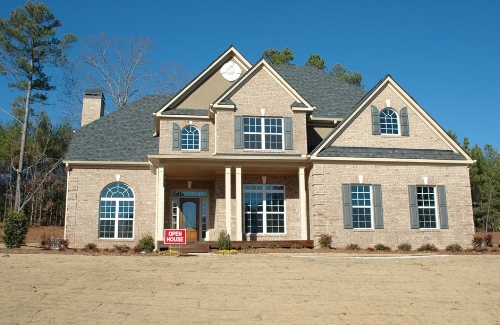GUEST POST BY NATALIE JONES
For couples, buying a home isn’t a one-foot-in, one-foot-out prospect. Both parties have to be in agreement when it comes to location, floor space, and price, otherwise problems will arise later on that can eat away at the relationship. Couples have separated over deep-seated resentments caused by a financial move that was made half-heartedly or forced on one partner by the other. Entering into the most important financial decision of your lives is inherently stressful, and things can get really difficult if you’re both not on the same page.
Honesty and openness are absolutely essential if it’s going to work, so make absolutely sure you both understand what you’re getting into and how it’ll impact your long-term financial position. The cost of your mortgage is just one of many potential flashpoints for couples. Goals should be agreed on and differences ironed out before you get too far into the home-buying process.
The elephant in the room.
Money is the biggest threat to marital harmony, especially when you’re considering taking on a mortgage. Discuss buying a home within the larger context of your financial objectives. Misunderstandings arising from a lack of communication are a real threat to any relationship. Many couples avoid discussing money for fear of setting off an argument or because one partner isn’t comfortable discussing it. Don’t be afraid to broach the subject of money. It’s something you’ll have to confront every month for 30 years if you’re buying a home, so you might as well air it out before signing on the dotted line.
Location, location, location
Once you’ve determined what you can afford and how you’ll handle a down payment, it’s time to start looking at neighborhoods. Most people have an idea of the kind of house they’d like to purchase, but you won’t know what it’ll cost until you get a feel for what’s available in the area where you want to live. Discuss what’s important to you in terms of amenities and things you
like to do in your leisure time. If you love to spend time outdoors, you might look for a home that’s near a park or public athletic complex.
If you can’t agree on location, make separate lists of your priorities and determine where you’re in agreement. Then make a single list you can use to narrow down your final choices. There’s nothing wrong with identifying two or three neighborhoods; it increases the likelihood that you’ll find what you’re looking for.
Agree on what you don’t want
Some couples like to make a list of what they definitely do not want in a home. It’s a good idea because it helps narrow down your search and sets mutual expectations for both partners. It’ll also save time since you won’t bother looking at homes that don’t have a two-car garage, for example, or houses that have siding that neither of you like.
Leave the kids at home
Avoid taking your kids along, at least early in the process. You don’t want them arguing over bedrooms before you’ve decided on a house, or complaining that they don’t want to leave their neighborhood and friends behind in the first place. This is a decision you and your partner need to make. You can take the kids along once you’ve narrowed down your list to two or three properties. Then you can make it clear that you’ll be targeting one and that you’d like their opinion as to which they like best.
Finance first
Always lay the groundwork for finding a house you both can be happy with by coming to an agreement about money first. Set a budget so neither of you is tempted by a home outside your affordability. If you’re both comfortable with what you’re spending, it’ll make it easier to find common ground in other areas. Most importantly, you’ll prevent an unpleasant situation later on.
For more information visit - http://homeownerbliss.info/


